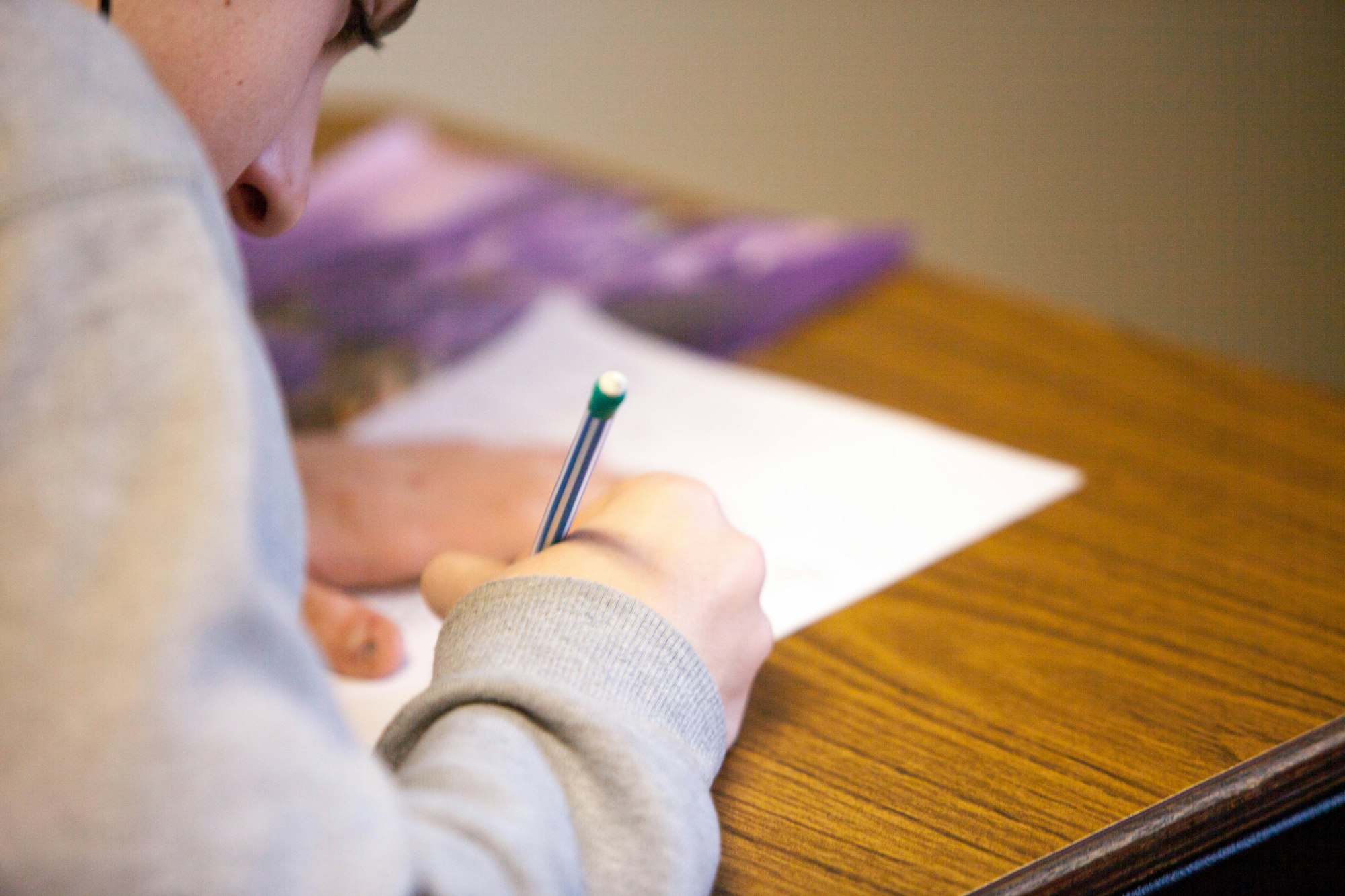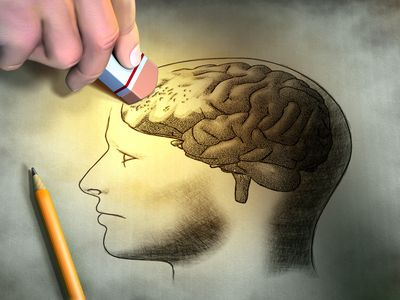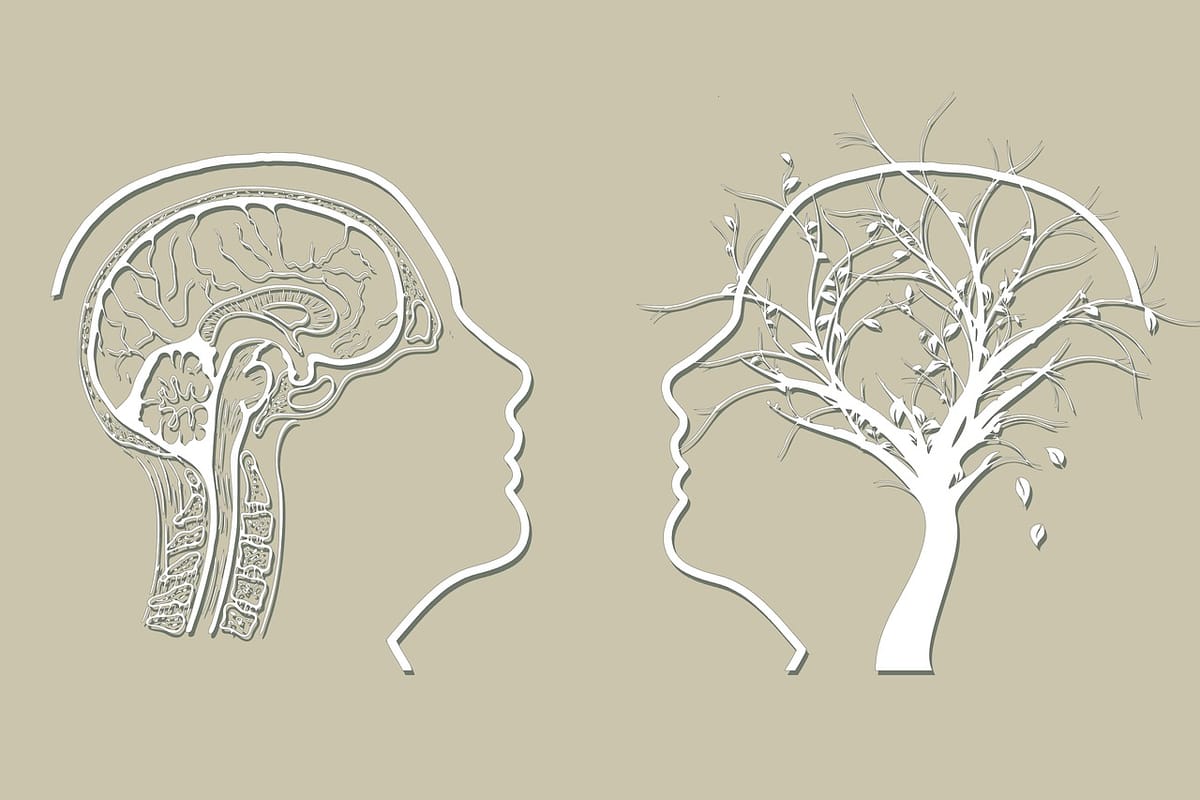Concussion Memory Loss: Can a Concussion Cause It?
Can a concussion cause memory loss? Yes, concussions can impact short-term or even long-term memory, depending on severity and frequency. Learn how head injuries disrupt brain function, symptoms to watch for, and when to seek medical help to ensure recovery.

Introduction to Concussions and Memory Loss
A concussion, which is a type of mild traumatic brain injury caused by a sudden force or impact, can have many serious symptoms. One common symptom is memory loss, which can occur soon after the initial injury, or in some cases, weeks or months later. Memory loss due to a concussion can be a devastating occurrence, as it has a significant impact on everyday life.
This guide will cover the causes of memory loss due to a concussion, the different types of memory loss, the symptoms of memory loss, the impact on everyday life, ways to diagnose and treat the injury, why this topic is relevant to medical professionals, prevention tips, coping strategies, and available resources.
It is important to understand memory loss due to a concussion in order to protect yourself from injury and manage the symptoms if you or someone you know sustain a concussion.
Defining Mild Traumatic Brain Injury and Memory Loss
A concussion is a type of traumatic brain injury caused by a direct blow or shake to the head that disrupts normal brain functions. A mild concussion is a common type of concussion characterized by the brain moving violently within the skull following an impact. It can be caused by a fall, a car accident, a sports-related injury, or any sudden jolt or impact that causes the brain to move inside the skull.
Memory loss is an impairment in the ability to acquire and store new information. It can range from minor forgetfulness to a severe form of memory loss known as amnesia. Memory loss can be caused by a variety of factors including aging, head trauma, or dementia.
When it comes to concussions, memory loss is one of the most common symptoms. People who have experienced a concussion may experience difficulty remembering things that happened before or after the injury. In some cases, memory loss can be long-term, depending on the severity of the concussion.
Causes and Concussion Symptoms Leading to Memory Loss
A concussion is caused by a jolt or a blow to the head that can cause the brain to move rapidly within the skull. This sudden movement can damage the brain cells and alter the way they communicate with each other.
The type of memory loss associated with a concussion is known as post-concussion syndrome (PCS). PCS is characterized by cognitive, emotional, and physical symptoms such as memory problems, difficulty concentrating, irritability, headaches, and fatigue.
The most common cause of memory loss due to a concussion is disruption of neural networks. Neural networks are pathways that connect the different areas of the brain and control how information is stored and retrieved. When a person suffers a concussion, these pathways can be damaged, leading to difficulty in accessing and recalling information.
It is also possible for a concussion to damage specific parts of the brain responsible for memory. Depending on the severity of the injury, this can lead to temporary or permanent memory impairment. Common areas that are affected by a concussion include the hippocampus and frontal lobe, which are both important for remembering past and recent events.
Different Types of Memory Loss
Memory loss due to a concussion can come in many different forms. The most widely-recognized is known as anterograde amnesia, which is the inability to form new memories. This means that someone who has suffered from a concussion may not be able to remember things that happened recently. Other forms of memory loss include retrograde amnesia, which is the loss of memories from before the incident, and global amnesia, which is the loss of all memories.
There are also more specific types of memory loss that may occur after a concussion. For instance, some people may experience problems with their short-term memory, meaning they have trouble remembering information immediately after learning it. Others may struggle with their long-term memory, making it difficult to remember important events or information from the past. Finally, some people may experience difficulty recalling specific details in order to remember a sequence or pattern.
Memory loss due to a concussion can be difficult to identify, as it can manifest itself in various ways. Symptoms of post-concussion memory loss may include impairment to retrieval of information, difficulty learning new information, confusion, disorientation, inability to concentrate, and difficulty completing everyday tasks.
Other behavioral indicators of memory loss post-concussion may include:
- Forgetfulness and difficulty remembering recent events
- Delay in processing information
- Trouble expressing thoughts in an organized manner
- Increased aggression and irritability
- Difficulty multitasking
- Inability to pay attention or stay focused
It is important to remember that everyone is affected differently by concussions so the symptoms may vary. If you or someone you know may have experienced a concussion, it is important to seek medical advice if any of these symptoms present themselves.

Symptoms of Concussion-Related Memory Loss
Concussions can cause a range of symptoms, including memory loss. The severity and duration of these symptoms can vary depending on the individual and the severity of the concussion.
Common symptoms: headache, fatigue, sensitivity to light and noise
- Headache: One of the most common symptoms of a concussion is a headache. This can range from a mild, dull ache to a severe, sharp pain. The headache may be persistent and can significantly impact daily activities.
- Fatigue: Fatigue is another frequent symptom following a concussion. It can make it challenging to concentrate, think clearly, and perform everyday tasks. This overwhelming sense of tiredness can persist for days or even weeks after the injury.
- Sensitivity to Light and Noise: Many individuals experience heightened sensitivity to light and noise after a concussion. Bright lights and loud sounds can become intolerable, making it difficult to be in well-lit or noisy environments.
Less common symptoms: smell and taste dysfunction, sleep disturbances
- Smell and Taste Dysfunction: Some people may notice changes in their sense of smell or taste following a concussion. These changes can be temporary or, in some cases, permanent, affecting the enjoyment of food and the ability to detect odors.
- Sleep Disturbances: Concussions can also disrupt normal sleep patterns. This can lead to insomnia, excessive daytime fatigue, and other sleep-related issues. Proper rest is crucial for recovery, so addressing sleep disturbances is an important part of managing concussion symptoms.
Diagnosis and Testing
Diagnosing a concussion can be challenging, as the symptoms can be subtle and may not appear immediately after the injury.
How concussions are diagnosed
- Physical Examination: A healthcare provider will start with a physical examination to check for signs of a concussion. This includes assessing for confusion, disorientation, and difficulties with balance and coordination. These initial checks are crucial for identifying the presence of a concussion.
- Medical History: The healthcare provider will gather a detailed medical history, asking questions about how the injury occurred, the severity of the impact, and any symptoms that have developed since the injury. This information helps in understanding the context and potential severity of the concussion.
- Imaging Tests: In some cases, imaging tests such as CT or MRI scans may be ordered. These tests help rule out other conditions like skull fractures or bleeding in the brain, which can present with similar symptoms but require different treatments.
- Cognitive Tests: Cognitive tests are often used to assess the severity of the concussion and monitor recovery progress. These tests evaluate memory, concentration, and other cognitive functions, providing a clearer picture of how the brain is healing.
It’s essential to seek medical attention immediately if you or someone you know has experienced a head injury and is showing signs of a concussion. Early diagnosis and treatment can help prevent long-term complications and promote a full recovery.

Impact of Post Concussion Syndrome on Everyday Life
Memory loss due to a concussion or severe head injuries can have a huge impact on everyday life. Problems with ‘episodic memory’, the ability to recall events that have happened, can make it difficult to remember things like appointments, people’s names, or even where you left your car keys. This type of memory loss can also affect short-term memory, making it difficult to remember something recently said, or items on a to-do list.
Problems with memory can also impact concentration, resulting in difficulty completing tasks or staying focused for long periods of time. This can lead to problems at work or school. Memory loss can also cause problems in social situations, as it can be hard to recall conversations or recognize people.
It is important for those who have experienced a concussion to be aware of the impact memory loss can have on everyday life so they can take steps to cope with it.
Diagnosing a concussion is the first step in successfully treating memory loss caused by a concussion. Generally, if a person has suffered a head injury that resulted in a concussion, a medical professional will perform a physical exam and take a full medical history to determine if a concussion has occurred. Additionally, the doctor may use imaging techniques such as X-rays or CT scans to obtain more detailed information in order to make an accurate diagnosis.
Once a concussion has been diagnosed, treatment for memory loss usually involves rest and time. The brain needs time to repair itself after an injury, and thus physical and mental rest are key to allowing the healing process to take place. Additionally, depending on the extent of the memory loss, there are various therapies available to help a person regain some or all of their lost memory. Memory training and remedial exercises, psychoanalysis, and cognitive therapies have all been found to be effective treatments for restoring some degree of memory loss after a concussion.
Finally, it is important to note that post-concussion memory loss can remain a long-term problem for some individuals. In these cases, individuals may require continued treatment in order to manage their symptoms and maintain their daily routines.
Relevance to Professionals
Post-concussion memory loss is an extremely important topic for medical professionals, as it can have a significant impact on a person’s well-being. Memory loss affects the ability of a patient to recall important information and activities that are important to their daily living. The severity of the memory loss can range from minor to severe, depending on the extent of the concussion. Medical professionals must be aware of the potential memory loss caused by a concussion in order to provide the proper care to patients.
It is also important for medical professionals to understand the potential causes of post-concussion memory loss. Depending on the type of concussion, there could be a variety of factors that contribute to memory loss. Memory loss due to a concussion may be caused by physical trauma to the brain, but it can also be caused by psychological trauma such as stress or anxiety. It is important for medical professionals to understand the specific causes of post-concussion memory loss in order to provide the best care possible.
Additionally, it is important for medical professionals to recognize the symptoms of post-concussion memory loss in order to provide the most effective treatment. Common symptoms of post-concussion memory loss can include difficulty with recall of recent events, confusion in new environments, and difficulty in concentrating on tasks. Medical professionals must be able to recognize these symptoms in order to provide the most appropriate treatment plan.
One of the best ways to reduce the risk of experiencing memory loss from a concussion is to follow head injury prevention tips. Here are some tips you can follow to reduce your chances of sustaining a concussion:
- Wear a helmet and other protective gear when engaging in activities that put your head at risk of injury.
- Pay attention to your surroundings and be aware of potential hazards.
- Stay up-to-date on safety protocols for any physical activities you participate in.
- Avoid participating in risky activities.
- Take time to rest and recover after any minor head injuries you experience.
Remember, prevention is key. Taking steps to reduce the risk of concussion-related memory loss is an important part of maintaining your overall health and wellbeing.

Coping Strategies for Memory Loss After a Concussion
If you have experienced memory loss due to a concussion, it can be difficult to cope with the various challenges that arise. Fortunately, there are some strategies that can help you manage the effects of memory loss more effectively. In addition to memory loss, individuals may also experience symptoms such as blurry vision, which can require additional medical attention or therapy.
One of the most important things to do is to take special care of your physical and mental health. This includes getting sufficient rest, eating healthy meals, drinking plenty of water, exercising regularly, and avoiding stress. It is also recommended to take preventative measures such as using a good night’s sleep schedule and avoiding any activities that require physical or mental strain.
Additionally, journaling and keeping track of your thoughts and experiences can be beneficial in managing memory loss. Writing down details such as events and conversations can help to create a more accurate record of your memory. You can also create simple reminders and notes that can be useful when trying to recall something or remember an event.
It is also advisable to create a supportive network of family and friends who can assist you throughout the process. A trusted group of people can provide a sense of security and understanding and can also be a great source of comfort and encouragement.
Finally, consider seeking professional help if the memory loss persists or if you are experiencing any other associated mental health issues. A mental health professional can provide insight into how to better manage the effects of memory loss in order to lead a fulfilling and rewarding life.
Concussion-related memory loss can be a serious problem that has far-reaching implications on everyday life. Memory loss can range from mild short-term issues to more severe, long-term impairments. It is crucial to be aware of the signs and symptoms associated with post-concussion memory loss in order to seek proper diagnosis and treatment.
It is also important to take preventative measures to reduce the risk of a concussion-related memory loss. This includes following proper safety guidelines, as well as understanding how to cope with memory loss if it does occur.
FAQ: Concussion and Memory Loss – Can a Concussion Cause It?
Can a concussion cause memory loss?
Yes, concussions can cause memory loss. Both short-term and long-term memory can be affected depending on the severity and number of head injuries sustained, which can disrupt normal brain function.
What types of brain injuries can result in memory problems?
Memory issues can arise from any traumatic brain injury (TBI), including mild concussions, moderate concussions, and severe traumatic brain injuries. Severe head injuries often have a higher risk of lasting memory impairment.
What is post-traumatic amnesia, and how does it relate to concussions?
Post-traumatic amnesia (PTA) refers to memory loss experienced after a concussion or TBI. It can cause confusion, trouble remembering recent events, and difficulty retaining new information, especially after the initial injury.
Can mild concussions lead to memory problems?
Yes, even mild concussions can lead to memory loss or difficulties in recalling recent events. This often resolves within a few weeks but may require medical attention if symptoms linger or worsen.
How can multiple concussions impact memory?
Repeated concussions can lead to long-term memory issues, mood swings, personality changes, and even permanent brain damage. Individuals in contact sports should be cautious, as multiple head injuries increase these risks.
What is post-concussion syndrome, and how does it relate to memory?
Post-concussion syndrome is a collection of symptoms, including memory loss, light sensitivity, poor sleep, and mood changes, that can persist weeks or even months after the initial head injury.
What are some common symptoms of a concussion besides memory loss?
Other symptoms include blurry vision, light sensitivity, headache, mood swings, sleep disturbances, trouble concentrating, and even personality changes. Severe cases may involve loss of consciousness.
How does a severe concussion differ from a mild one?
A severe concussion may result in longer-lasting symptoms, like post-traumatic amnesia, loss of consciousness, and difficulty returning to normal activities. Mild concussions usually resolve faster but may still cause memory and focus issues.
Should I seek medical attention after a head injury?
Yes, especially if memory loss, confusion, or other symptoms persist. A healthcare professional, such as a team physician, can assess the severity, possibly with a physical exam and imaging, and recommend treatment.
How long do memory problems last after a concussion?
Most memory issues resolve within a few weeks to months. However, some individuals may experience lingering symptoms, especially if they’ve had multiple concussions or a severe brain injury.
What role do nerve fibers play in concussion memory loss?
During a concussion, nerve fibers in the brain can stretch or tear, which disrupts brain cell communication. This damage may impact memory, mood, and cognitive function.
Are there treatments for memory loss following a concussion?
Treatment may include physical therapy, cognitive exercises, and rest. Medical care is vital to monitor progress, and taking medication may be necessary for persistent symptoms like mood swings or sleep problems.
How can I prevent head injuries that lead to concussions?
Prevention tips include wearing helmets during sports, avoiding high-risk activities without protective gear, and following safety guidelines to reduce the chance of head trauma or a second concussion.
What is second impact syndrome, and why is it dangerous?
Second impact syndrome occurs when a second concussion is sustained before the first one fully heals, leading to severe brain swelling and potentially permanent brain damage. It’s crucial to allow full recovery before resuming physical exertion.
Can concussions lead to sleep problems?
Yes, concussions can disrupt sleep patterns, causing disturbances like insomnia or poor sleep quality. Good sleep hygiene is essential to recovery, as sleep helps the brain heal.
Do concussions only happen in contact sports?
No, concussions can occur in various settings, from contact sports to accidents like falls or car accidents. It’s important to be cautious with any activity that risks head impact.
Can a concussion cause mood swings or personality changes?
Yes, concussions can affect areas of the brain that regulate mood, leading to mood swings, irritability, and sometimes personality changes, especially in cases involving repeated concussions or severe brain injuries.
What should I do if I notice a family member struggling with memory after a head injury?
Encourage them to seek medical attention. A professional evaluation can provide guidance on managing symptoms and preventing further injury.
Are there long-term impacts on memory from severe TBIs?
Severe TBIs can lead to lasting or permanent memory issues and other cognitive impairments. Long-term medical support and cognitive rehabilitation are often necessary in these cases.
How does physical therapy help with recovery after a concussion?
Physical therapy can support recovery by improving balance and coordination, which may be affected by concussions. Therapists may also suggest cognitive exercises to aid memory and focus.
You might also like this article:
Our Resources section can help you find the information and tools that you need. We have courses, videos, checklists, guidebooks, cheat sheets, how-to guides and more.
You can get started by clicking on the link below. We know that taking care of a loved one is hard work, but with our help you can get the support that you need.
Click here to go to Resources Section now!




